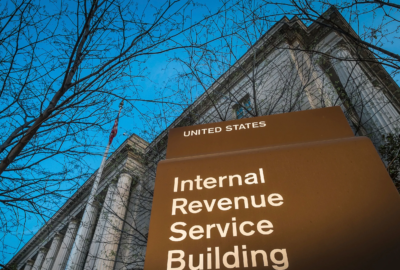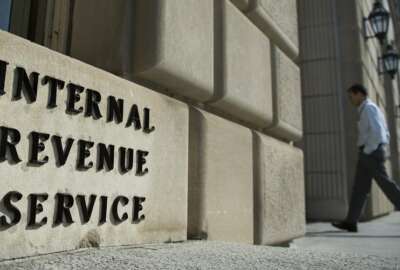

Senate Finance Committee ranking member Ron Wyden (D-Ore) said the IRS, faced with more questions and a “more complicated” filing season this year, expects to...
Senate Finance Committee ranking member Ron Wyden (D-Ore) said the IRS, faced with more tax help questions and a “more complicated” filing season this year, expects to receive an unprecedented 14.6 million requests for filing extensions before the tax season deadline.
Amid shrinking budgets, Sen. Ben Cardin (D-Md.) said the IRS fares well under President Donald Trump’s fiscal 2020 budget request. However, the request also contains familiar cuts to federal employee benefits and a pay freeze that Cardin said he opposes.
“The good news is that it does all right for the IRS, [but] it does not do all right by the federal workforce,” Cardin said at a town hall for IRS employees in Lanham, Maryland. “We’re not going to support those proposals that would ask you to pay more for your pension plans and reduce your pension benefits not just as IRS federal workers, but all federal workers.”
The FY 2020 budget would give the IRS nearly $11.5 billion, or more than a 2.5% increase from the nearly $11.2 billion budget it received in FY 2019. However, over the past 10 years, the agency has seen its budget reduced by nearly $1 billion, resulting in a 23% reduction of its workforce.
The surge in filing extensions cited by Wyden, first reported by the New York Times on Friday, follows a warning National Taxpayer Advocate Nina Olson had made last month about an increase in the number of tax filing extensions.
Following a House Ways and Means subcommittee hearing on March 7, Olson said the volume of extensions had gotten to a point where her office had been “thinking about” whether it would make sense for the IRS to move the filing season deadline back.
While Olson said the 35-day partial government shutdown couldn’t have come at a “worse time” for the IRS, Cardin said he has continued to push for legislation that would lessen a future shutdown’s impact on the federal workforce.
One bill introduced by Cardin would protect federal employees and contractors from losing their security clearances over financial emergencies connected to a shutdown. A second bill would trigger an automatic continuing resolution in the event of a lapse in appropriations.
“The best thing we can do — and this is not a very high standard — we should pass the budget. We should not have a government shutdown,” Cardin said.
The senators also said the passing the 2019 Taxpayer First Act, a comprehensive tax administration bill with bipartisan support, remains a top priority for this year.
The bill, if passed, would prevent private debt collectors from going after debts less than two years old and from taxpayers who are more than 200% below the federal poverty level.



“That’s one area that is still open, that is not without controversy, because of the private interest in maintaining that,” Cardin said.
The bill would also increase the financial penalty for paid tax preparers who inadvertently disclose personally identifiable information that results in identity theft. Lawmakers expect that provision will raise less than $500,000 over the next 10 years, but will serve as a strong incentive for tax preparers to secure sensitive taxpayer information.
IRS Commissioner Chuck Rettig said he supports the measure, adding that “having a better trained, paid tax preparer community helps everyone.”
But despite support from the IRS commissioner, Cardin noted “reluctance” from members of Congress to include that provision in the bill.
During the town hall, one IRS employee told Rettig and the senators that the agency’s tax compliance division had threatened to fire him over unpaid taxes, despite his communications with the office about a freeze on his Thrift Savings Plan account as the result of ongoing divorce proceedings.
“They are backlogged, they do not have enough people to take care of their responsibilities, and all they give us is … saying if you don’t pay, you could be fired,” the IRS employee said. “‘We are going to review you, and if you are not right, if you don’t tell us the truth, you are going to be fired.’”
Rettig acknowledged that IRS employees are “held to a higher standard” on tax compliance, but said he’s “very sensitive” to employees faced with extenuating circumstances. In addition, he said he has the final say on employee termination decisions.
“There’s a whole lot of other people that look at things before it comes to my desk, but all of these come to my desk before there’s any final action,” Rettig said.
Cardin and Wyden, speaking to reporters after the town hall, said they would wait to hear from Rettig and the National Treasury Employees Union about an administrative fix to the employee’s problem, but said it was too early to consider introducing a bill to correct the problem.
“We’re not quite ready to say that this is a bill that needs to be filed, because we don’t really know what it would be,” Cardin said. “So we’ll wait to see what the commissioner says.”
In 2015, the Treasury Inspector General for Tax Administration (TIGTA) found nearly 16,000 IRS employees “willfully tax noncompliant” with their taxes between 2003 and 2013.
The 1998 Restructuring and Reform Act gives the IRS the authority to fire IRS employees who are delinquent on their taxes, but the TIGTA found only 620 employees it identified were fired, or resigned or retired as a result.
Copyright © 2025 Federal News Network. All rights reserved. This website is not intended for users located within the European Economic Area.
Jory Heckman is a reporter at Federal News Network covering U.S. Postal Service, IRS, big data and technology issues.
Follow @jheckmanWFED
